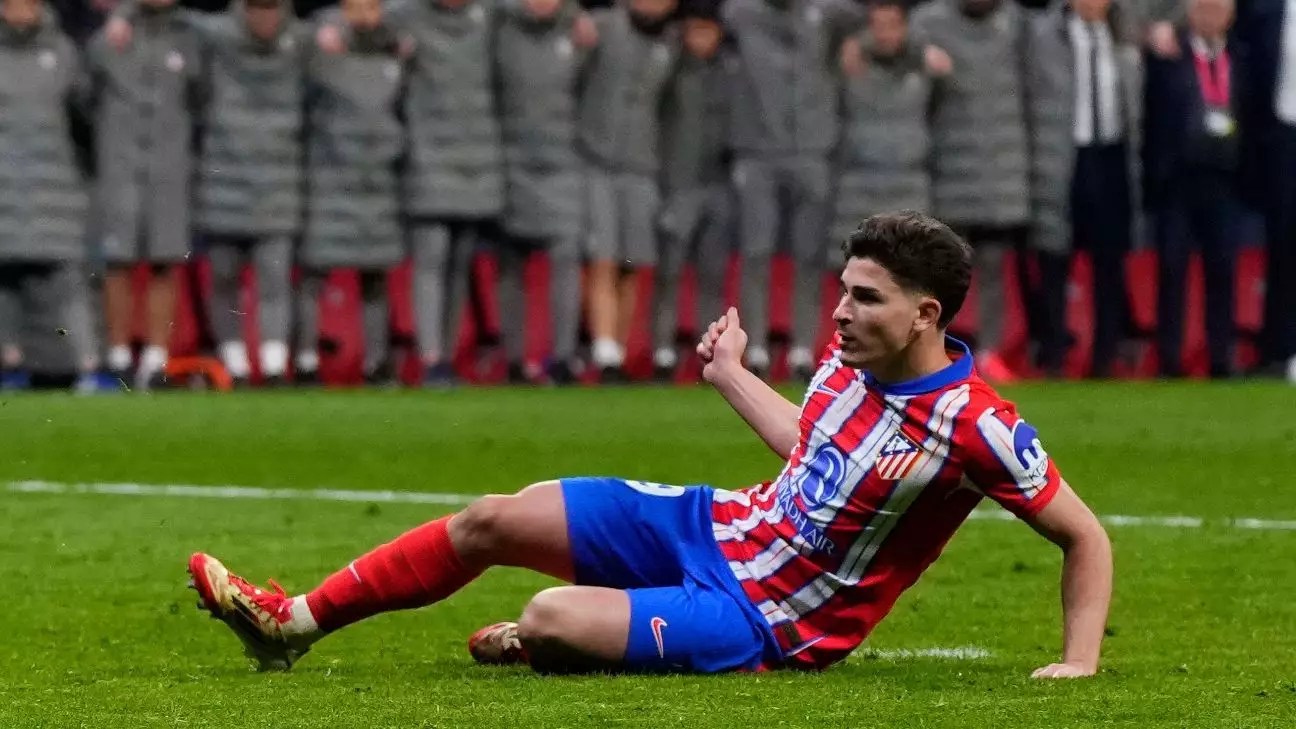The world of soccer has witnessed a monumental change with the recent clarification of penalty kick regulations by FIFA’s rules panel, IFAB. This adjustment comes in light of a contentious incident involving Julián Álvarez, whose accidental double touch led to Atlético Madrid’s heartbreaking elimination from the Champions League. The revision isn’t just a technical shift; it has the potential to redefine the dynamics of penalty shootouts and influence the mental dynamics players experience during crucial moments in high-stakes matches.
Understanding the Fallout
Álvarez’s situation during the shootout against Real Madrid serves as a case study on how the vagueness in the rules affected the game. As he slipped and inadvertently kicked the ball against his own foot—an unintentional double touch—his apparent goal was disallowed following a VAR review. The decision was met with widespread dissent from players, coaches, and fans alike. Many perceived it as a miscarriage of justice since Álvarez had not intended to cheat the system benefits to gain an unfair advantage. The clarifications from IFAB effectively state that contexts matter, offering a lifeline for situations deemed unfair due to unintentional errors.
A Detailed Breakdown of the New Rules
The newly articulated rules make it clear: if a penalty kick occurs and is scored after an accidental double touch, it will be retaken. This stipulation represents a significant shift from previous interpretations, which often penalized the player in such scenarios. IFAB elaborated that double touches should primarily be scrutinized when they are made deliberately by the kicker. Thus, referees are encouraged to use their judgment in light of the intent behind the player’s actions.
Moreover, the revisions specify that if a double touch does not result in a goal, the attempt will be recorded as a missed penalty, reinforcing clarity in the game’s statistical representations. The implications of this ruling extend beyond the pitch; they will resonate within locker rooms as players and coaches adapt their strategies to accommodate this newfound clarity, potentially leading to more confident execution of penalty kicks devoid of playing mind games.
Wider Implications for Future Competitions
This revitalization of the penalty kick laws will also influence other significant tournaments, including the upcoming Club World Cup. As Atlético prepares to participate, this rule overhaul could be crucial for them and other teams, as they navigate through their matches with a fresh understanding of what constitutes fair play under this new light.
Furthermore, as this new interpretation rolls out in UEFA-organized games, the anticipation is palpable. Fans and analysts alike will be keen to see how this rule alteration affects team strategies and player behaviors in crucial moments of action. The ripple effects might even motivate players to adopt more creative approaches to their penalty taking, transforming what has been a repetitive aspect of the game into a more thrilling spectacle.
As soccer evolves, so too must its rules. With IFAB’s recent updates, a clearer path for penalty kick rulings has emerged, promising a fairer and more transparent game. It exemplifies a critical shift in how the sport honors both intention and action, marrying tradition with the need for progression. The beautiful game stands poised at the brink of a transformative era, where even the smallest rule changes could shift the outcomes of the biggest competitions.


Leave a Reply